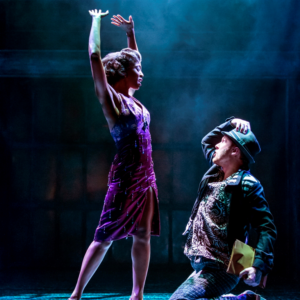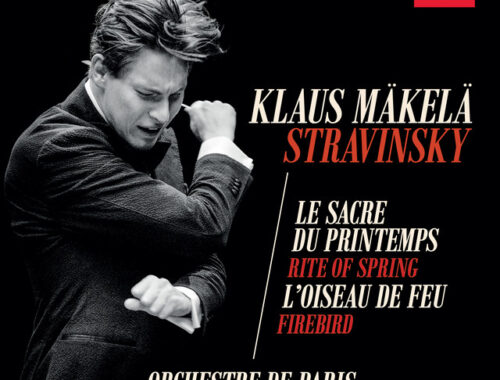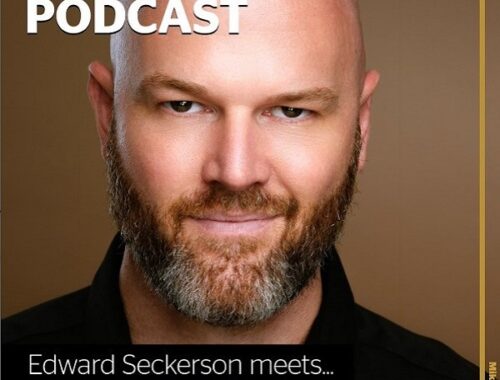Memphis, Shaftesbury Theatre
 It’s throwback week with two very different shows recalling the darkest days of America’s racial disharmony – but where The Scottsboro Boys shocks and satirises and has us choke on our own laughter Memphis is content to be the feel-good flipside. Throw a few home truths and a little grit into the mix – disturbing but not too real – keep it predictable and sentimental, even a little patronising, and ensure that everybody is dancing in the aisles at the close and leaves feeling good about themselves. It’s a bit like Hairspray but without the wit and self-parody – and, dare I say it, the score. You might think a show called Memphis would be odds-on a juke-box musical – but the good news is it’s an original score (though I use the word “original” with some caution) by David Bryan (of Bon Jovi fame) and it sings and plays with conviction, if a somewhat generic feel, by way of a hot band, keyboard led by the nimble fingered Tim Sutton, and a super-dynamic cast. That said, there’s not an original bone in its body and both the concept (George W George) and Joe DiPietro’s book trade in clichés and very old jokes: “How do you know when a man is lying…?” Go on, you know you can finish it.
It’s throwback week with two very different shows recalling the darkest days of America’s racial disharmony – but where The Scottsboro Boys shocks and satirises and has us choke on our own laughter Memphis is content to be the feel-good flipside. Throw a few home truths and a little grit into the mix – disturbing but not too real – keep it predictable and sentimental, even a little patronising, and ensure that everybody is dancing in the aisles at the close and leaves feeling good about themselves. It’s a bit like Hairspray but without the wit and self-parody – and, dare I say it, the score. You might think a show called Memphis would be odds-on a juke-box musical – but the good news is it’s an original score (though I use the word “original” with some caution) by David Bryan (of Bon Jovi fame) and it sings and plays with conviction, if a somewhat generic feel, by way of a hot band, keyboard led by the nimble fingered Tim Sutton, and a super-dynamic cast. That said, there’s not an original bone in its body and both the concept (George W George) and Joe DiPietro’s book trade in clichés and very old jokes: “How do you know when a man is lying…?” Go on, you know you can finish it.
The premise is simple – in Memphis the music of the segregated black community finds a champion in wacky renegade DJ – the whiter-than-white Huey Calhoun (Killian Donnelly) – whose dream is to bring the music that ignites his soul to white folk. The hope is that Rhythm and Blues and the new-fangled Rock and Roll will spill across the divided communities and bring people together not drive them apart. So Memphis wields a mighty metaphor on the power of music to break down social and cultural barriers – but you can’t taste the dish it serves up for the hot sauce it pours over everything. Of course, Huey falls in love with the sizzling black singer (Beverley Knight) he comes to champion and the rest you can surely see coming. Including Huey’s Mom Gladys (the deliciously feisty Claire Machin) who we just know will set aside her deep rooted prejudices and see the light at some point; and the mute black boy who finds his voice at the traumatic act one curtain.
So subtle or innovative the show is most certainly not – but it knows its audience and it both promises and delivers the kind of party where the quality of the numbers matters less than the fervour with which they are despatched by a high-octane company. Everybody gets their “turn” – the cool and lissom Rolan Bell as Delray, the zany and wiry Jason Pennycooke as Bobby. And, of course, there’s Beverley Knight – Queen of British Soul – and what a set of pipes she has. Her rangy melismas take us to places off the vocal chart that we rarely visit and whenever she’s singing it becomes strangely irrelevant what she’s singing.
But the star of the show is undoubtedly Killian Donnelly whose Huey creates an entirely new and quirky leading man. He’s heartfelt, he’s dynamic, he’s infectious, he’s affecting – he’s one of the few things in the show that is truly believable. And he gets a cracking eleven o’clock number, the best in the show, “Memphis Lives in Me”, which he nails to the back of the gallery. White soul indeed.
Two final thoughts: the final number, in tone and shape, is as good as borrowed from Hairspray – an homage or a shameless steal? – and prospective punters should note that, ominously, there are “alternates” for the two leads (a now well-established custom that I confess I have difficulty with) meaning that you should check that Knight and Donnelly are scheduled to be performing when you purchase your tickets.
Photo by John PerssonGypsy, Chichester Festival Theatre
You May Also Like

A Conversation With LLYR WILLIAMS
02/09/2010
GRAMOPHONE Review: Stravinsky Firebird & The Rite of Spring – Orchestre de Paris/Mäkela
18/05/2023